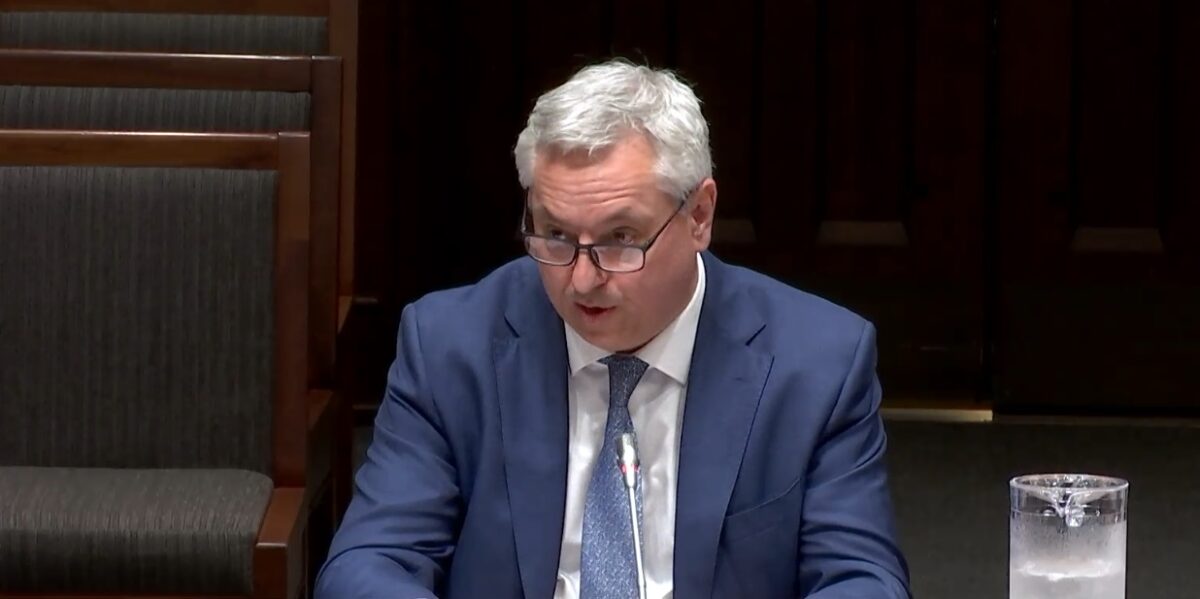Among the controversial provisions are section 20 (1) “Every person commits an offence who, at the direction of, for the benefit of or in association with, a foreign entity or a terrorist group, induces or attempts to induce, by intimidation, threat or violence, any person to do anything or to cause anything to be done (a) that is for the purpose of increasing the capacity of a foreign entity or a terrorist group to harm Canadian interests; or (b) that is reasonably likely to harm Canadian interests.”
Language in the provision, such as being “in association with” or “foreign entity” are so broad they could be easily abused. What might be considered a “foreign entity” is also up for grabs.
The punishment for the above is drastic: “Every person who commits an offence under subsection (1) is guilty of an indictable offence and is liable to imprisonment for life.”
Testifying before the House Standing Committee on Public Safety and National Security last Monday, Tim McSorley of the International Civil Liberties Monitoring Group representative warned that “Bill C-70 also grants CSIS significant new production order and warrant powers. It comes after years of courts admonishing CSIS for misleading them in their warrant applications.”
Imagine protesting against the Zionist genocide in Palestine and being considered violent and doing so to the benefit of Hamas, who are considered a terrorist organization.
Bam. Offense committed.
The term that’s causing my alarm bells to ring here is “Canadian interests”. The interests of the state often do not align with the interests of the people, and it’s not terribly difficult to tie behaviour that interferes with the state’s interests to the benefit of foreign entities that may oppose the state.
How about all those MPs who at the direction of a foreign entity increased the capacity of that foreign entity to harm Canada?




